Freeze: Eight things to watch in new BBC Three figure skating series
- Published
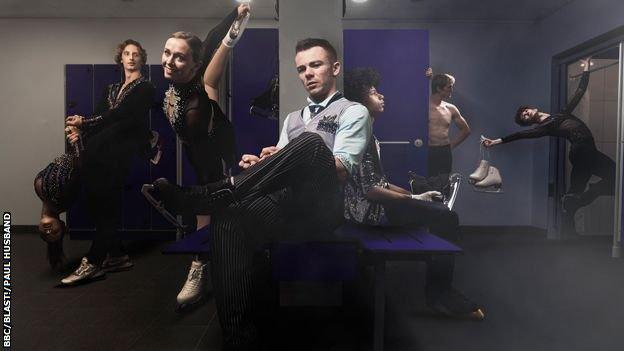
Freeze episode one airs on BBC Three on Saturday 5 February at 21:00 GMT
Already got the Winter Olympics buzz? Thrilled by the pace, the skill, the snow and the ice?
If you want to know what it takes to become an elite figure skater, then you will find awe-inspiring athletes and real stories in new BBC Three figure-skating documentary Freeze.
Filmed over the course of the 2021 season, the series takes a triple-axel jump into the world of UK figure skating. Think 'Cheer', but on ice.
The first episode airs at 21:00 GMT on the new BBC Three Channel on Saturday 5 February, with the first four episodes on iPlayer afterwards.
The skaters have to be unbelievably dedicated
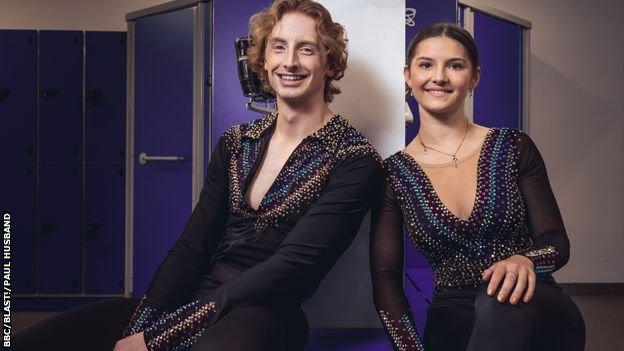
Anthony Currie and Eleanor Hirst qualify for international competition during the series
Unlike footballers, these skaters have to completely fund themselves, which usually relies either on help from parents or working ungodly hours.
Peter James "PJ" Hallam was British national champion in 2019. He breaks down his daily routine.
"I get up at 5am, go to the rink, teach until 7:20am, train," he describes in one scene, explaining: "I have to raise about £20,000 a year, just to keep my blades on the ice."
Anthony Currie, part of a skating couple with Eleanor Hirst, estimates that he spends 90 hours a week at the rink.
Spours is a warrior
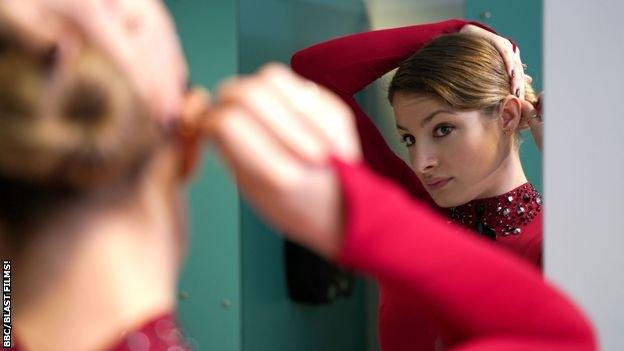
Kristen Spours had to completely relearn to skate after injury
All of the skaters featured in the series are inspirational, but Kristen Spours' story of overcoming injury stands out.
The 21-year-old was one of the youngest British skaters to compete at a senior British Championship when she was 15.
Three years later, it all could have been over.
"I literally woke up one day and couldn't feel my left leg from the knee down," she explains.
She had slipped three discs in her back. The doctor advised her to have surgery. Instead, she spent two years doing physiotherapy and relearning to skate, in order to be able to be in a position to compete in international competition again.
Presentation is important - perhaps too important?
Spours speaks about how, as a more muscular athlete than other women, she does not fit the typical mould of a female skater.
In other scenes, judges comment on her hairstyle.
Skater Billy Wilson French says it is "not written down" that costumes and hairstyles will be judged, but believes that these things do get taken into account.
"A lot of the judges are very conservative people who expect figure skating to be a certain way," says Currie.
Mental blocks are real
At the Tokyo Games last summer, gymnast Simone Biles withdrew from competition after suffering what she called a case of the "twisties".
Figure skaters can suffer the same kinds of performance issues.
Coach Yebin Mok says: "It's very, very common to have a mental block. You're doing the same thing over and over again, it just doesn't work and you're like, 'why isn't it working?'"
The triple axel is the holy grail jump
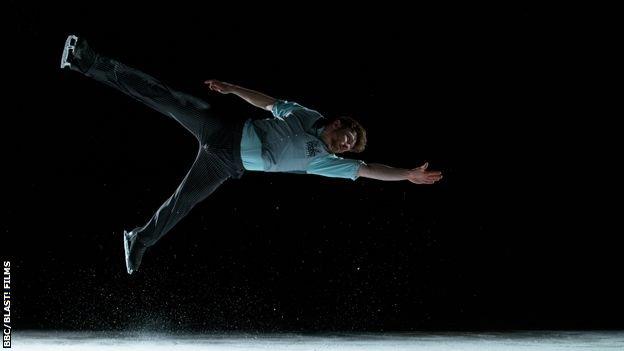
PJ has to overcome anxiety after lockdown to master the triple axel
One of the jumps that takes a lot of mettle to even attempt is the triple axel. It involves three-and-a-half rotations mid-air.
Mark Hanretty, a former ice dancer who works as a coach, calls the triple axel, "an absolute prerequisite" for any male who wants to compete at international competition.
PJ remembers the first time he nailed one.
"I started crying," he says, explaining, "I suddenly realised, 'oh my God, I can be British champion, I can go to the Worlds'."
Serious injuries are a regular occurrence
This sport is not for the faint-hearted. Some of the falls in the series are horrific.
"I've been concussed many, many times," says young skater Ashley. "I've split my cheek open from falling, I've broken my foot six times."
Another skater adds, "Everyone knows someone who's had a near-fatal accident on the ice."
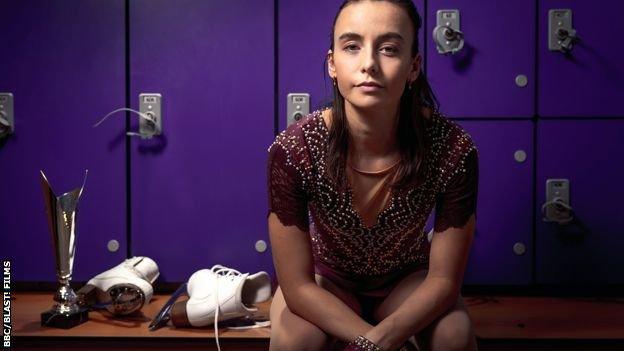
Emily Hayward suffers a concussion that puts her out of international qualifiers
The coaches can be tough
Three-time British bronze medallist Harry Mattick tells a troubling story in one episode about an abusive former coach.
He remembers one time when he finally shouted back.
"He punched me in the stomach," Mattick recounts, adding, "I remember being in a lot of shock, but thinking, 'well, that's something I can use to leave now'."
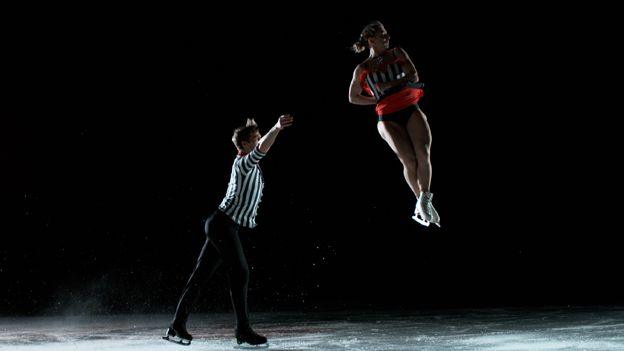
Lydia Smart has to rebuild her trust in partner Harry Mattick when he drops and injures her on the ice
The figure skating pair competing at Beijing
Figure skaters either compete as singles or in mixed-sex pairs. At Beijing, Lilah Fear and Lewis Gibson, who feature briefly in Freeze, will be representing Team GB as a pair. Fear is English-Canadian, whilst Gibson grew up in Prestwick, Scotland.
When they began working together in 2016, they both took the decision to relocate to Montreal, Canada, in order to train there.
"We train around three to four hours together on the ice, six days a week and then, each day, we probably do about two hours of off-ice as well," Gibson tells BBC Sport.
Fear says it's "healthy to have that day apart!"
Watch Freeze episode one on BBC Three on Saturday 5 February at 21:00 GMT.
